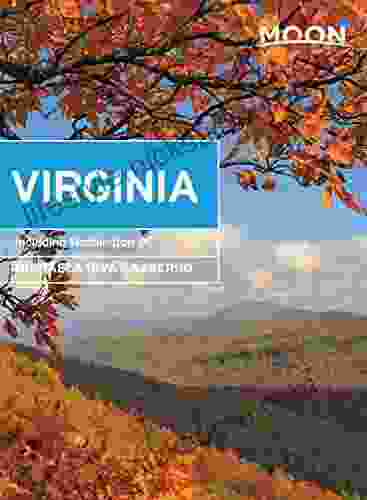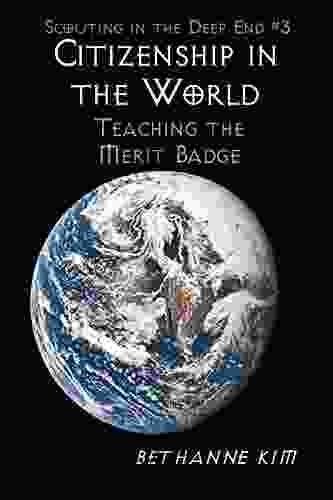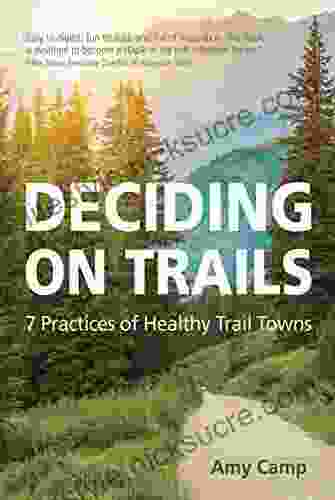The Thousand Year Run of Salmon: A Journey Through Time and Space

The journey of salmon is one of the most epic and awe-inspiring in the natural world. From the moment they hatch as tiny fry in freshwater rivers, to their epic migration to the ocean, and their eventual return to their birthplace to spawn, salmon face incredible odds and overcome seemingly insurmountable obstacles. In this article, we will take a closer look at the thousand-year run of salmon, exploring their biology, their behavior, and the challenges they face along the way. We will also discuss the cultural and economic significance of salmon, and the importance of protecting these iconic fish for future generations.
4.6 out of 5
| Language | : | English |
| File size | : | 4544 KB |
| Text-to-Speech | : | Enabled |
| Screen Reader | : | Supported |
| Enhanced typesetting | : | Enabled |
| Word Wise | : | Enabled |
| Print length | : | 306 pages |
The Biology of Salmon
Salmon are a type of anadromous fish, meaning that they are born in freshwater, migrate to the ocean to grow and mature, and then return to freshwater to spawn. Salmon belong to the family Salmonidae, which also includes trout, char, and whitefish. There are seven species of Pacific salmon and one species of Atlantic salmon. Pacific salmon are found in the North Pacific Ocean, while Atlantic salmon are found in the North Atlantic Ocean.
Salmon are typically born in small, gravel-bottomed streams. They spend the first few years of their lives in freshwater, feeding on insects and other small creatures. As they grow larger, they begin to migrate downstream towards the ocean. The migration to the ocean is a perilous journey, and many salmon do not survive. Those that do reach the ocean will spend the next few years feeding and growing. Some salmon will stay in the ocean for as long as seven years before they return to freshwater to spawn.
When salmon are ready to spawn, they return to the stream where they were born. The journey back to their birthplace is often an arduous one, and many salmon die along the way. Those that do reach their destination will spawn, and the cycle will begin again.
The Challenges Facing Salmon
Salmon face a number of challenges throughout their lives. In freshwater, they must contend with predators, pollution, and habitat loss. In the ocean, they must face predators, disease, and competition for food. And when they return to freshwater to spawn, they must face the challenges of the migration, as well as the dangers of dams and other man-made obstacles.
One of the most serious threats to salmon is habitat loss. As human populations grow, we are encroaching on salmon habitat. We are building dams, roads, and other structures that block salmon migration. We are also polluting our rivers and streams, which makes it difficult for salmon to survive. As a result of these threats, many salmon populations are in decline.
The Cultural and Economic Significance of Salmon
Salmon are an important part of the culture and economy of the Pacific Northwest. For centuries, Native Americans have relied on salmon for food, sustenance, and trade. Salmon are also an important part of the tourism industry, and they generate millions of dollars in revenue each year.
The decline of salmon populations is a serious threat to the culture and economy of the Pacific Northwest. If we do not take action to protect salmon, we will lose a valuable part of our heritage and a significant source of food and income.
The Importance of Protecting Salmon
Salmon are a keystone species, meaning that they play a vital role in the ecosystem. Salmon provide food for other animals, such as bears, eagles, and orcas. They also help to fertilize the soil and provide nutrients for plants. The loss of salmon would have a ripple effect throughout the ecosystem, and it could lead to the decline of other species.
In addition to their ecological importance, salmon are also an important part of our culture and economy. Salmon are a traditional food source for Native Americans, and they are also a popular sport fish. The decline of salmon populations would have a significant impact on both of these groups.
There are a number of things that can be done to protect salmon. We can protect their habitat, reduce pollution, and remove dams and other barriers to migration. We can also support sustainable fishing practices and educate the public about the importance of salmon.
By taking these actions, we can help to ensure that salmon will continue to thrive for generations to come.
The journey of salmon is a remarkable one. It is a story of survival, resilience, and adaptation. Salmon are an important part of our ecosystem, our culture, and our economy. We must do everything we can to protect these iconic fish for future generations.
4.6 out of 5
| Language | : | English |
| File size | : | 4544 KB |
| Text-to-Speech | : | Enabled |
| Screen Reader | : | Supported |
| Enhanced typesetting | : | Enabled |
| Word Wise | : | Enabled |
| Print length | : | 306 pages |
Do you want to contribute by writing guest posts on this blog?
Please contact us and send us a resume of previous articles that you have written.
 Fiction
Fiction Non Fiction
Non Fiction Romance
Romance Mystery
Mystery Thriller
Thriller SciFi
SciFi Fantasy
Fantasy Horror
Horror Biography
Biography Selfhelp
Selfhelp Business
Business History
History Classics
Classics Poetry
Poetry Childrens
Childrens Young Adult
Young Adult Educational
Educational Cooking
Cooking Travel
Travel Lifestyle
Lifestyle Spirituality
Spirituality Health
Health Fitness
Fitness Technology
Technology Science
Science Arts
Arts Crafts
Crafts DIY
DIY Gardening
Gardening Petcare
Petcare Angela Moore
Angela Moore Michael Parker Pearson
Michael Parker Pearson James Mullaney
James Mullaney E T Bryant
E T Bryant Mark Worden
Mark Worden Anthony Haynes
Anthony Haynes Nikala Smith
Nikala Smith L Frank Baum
L Frank Baum Alexandrea Weis
Alexandrea Weis K F Breene
K F Breene Helen E Fisher
Helen E Fisher Tyler Simmons
Tyler Simmons Nina Freudenberger
Nina Freudenberger Dana Obleman
Dana Obleman Mitt Romney
Mitt Romney Dan Abnett
Dan Abnett Jacob Bronowski
Jacob Bronowski Cathy Williams
Cathy Williams Brian Kateman
Brian Kateman Paul Kockelman
Paul Kockelman Nick Kolenda
Nick Kolenda Erin Chack
Erin Chack Robyn Davidson
Robyn Davidson Kate Tietje
Kate Tietje Amara Charles
Amara Charles Josiah Hesse
Josiah Hesse John Mcpherson
John Mcpherson Deborah Lipsky
Deborah Lipsky Frank Nappi
Frank Nappi Rose Mannering
Rose Mannering Clancy Cavnar
Clancy Cavnar William G Dever
William G Dever Brian Klaas
Brian Klaas Autumn Jordon
Autumn Jordon Jennifer Margulis
Jennifer Margulis Edward J Denecke
Edward J Denecke Shanna Cunning
Shanna Cunning American Psychological Association
American Psychological Association Vivian Vande Velde
Vivian Vande Velde Janet Engle
Janet Engle Mark W T Harvey
Mark W T Harvey Grant Dever
Grant Dever Spike Dykes
Spike Dykes Pinky Mckay
Pinky Mckay Kathleen M Stacy
Kathleen M Stacy Joseph Howse
Joseph Howse Andrey Ryanskiy
Andrey Ryanskiy Marisa Anne Bass
Marisa Anne Bass Mike Adamick
Mike Adamick Kezia Endsley
Kezia Endsley Jean Christie Ashmore
Jean Christie Ashmore Tom Patri
Tom Patri Leslie Sansone
Leslie Sansone Susan White
Susan White Amira Mikhail
Amira Mikhail Jean Rose
Jean Rose Jonathan Bartlett
Jonathan Bartlett Harley Reid
Harley Reid Mark Taylor
Mark Taylor Robert Melillo
Robert Melillo Dan Schlossberg
Dan Schlossberg Brian Pace
Brian Pace Krystal Sutherland
Krystal Sutherland Sue Monk Kidd
Sue Monk Kidd Naomi Oreskes
Naomi Oreskes David Grinspoon
David Grinspoon Matthew Lombardi
Matthew Lombardi Therese A Rando
Therese A Rando Tracy Lorraine
Tracy Lorraine Arlene Blum
Arlene Blum Danny Dreyer
Danny Dreyer Derrick Jensen
Derrick Jensen Peter Larson
Peter Larson Gia Giasullo
Gia Giasullo Umer W
Umer W C W Lockhart
C W Lockhart Amie Lands
Amie Lands Jonathan Law
Jonathan Law Toni Tone
Toni Tone Shaun Gallagher
Shaun Gallagher Charles J Alsheimer
Charles J Alsheimer Tabitha Suzuma
Tabitha Suzuma Martin Williams
Martin Williams David Burch
David Burch Bethanne Kim
Bethanne Kim Sandra Bardwell
Sandra Bardwell Ronda Rousey
Ronda Rousey Laini Taylor
Laini Taylor David Elkington
David Elkington Sarah Morgan Haydock
Sarah Morgan Haydock Erik Qualman
Erik Qualman John L Field
John L Field Diane Greer
Diane Greer Emma Mae Jenkins
Emma Mae Jenkins Lizabeth Hardman
Lizabeth Hardman Andy Singleton
Andy Singleton Rick Stanton
Rick Stanton Jerry D Moore
Jerry D Moore Douglas Wilson
Douglas Wilson Mark Stallard
Mark Stallard Anna B Doe
Anna B Doe Jason Borte
Jason Borte Md Mahady Hasan
Md Mahady Hasan Tom Colicchio
Tom Colicchio Trent Shelton
Trent Shelton Jake Maddox
Jake Maddox Amy Brown
Amy Brown John Jacobs
John Jacobs Amber Lee Sellers
Amber Lee Sellers Jim Santos
Jim Santos Trevor Day
Trevor Day Nicholas A Christakis
Nicholas A Christakis Stephen Walker
Stephen Walker Theodore Sider
Theodore Sider Jason Thompson
Jason Thompson Victoria Richards
Victoria Richards Terry Wieland
Terry Wieland Charles Hall
Charles Hall Sterling Test Prep
Sterling Test Prep Amber Smith
Amber Smith Jennifer S Kelly
Jennifer S Kelly Buck Tilton
Buck Tilton Garrett M Fitzmaurice
Garrett M Fitzmaurice Christopher Harlan
Christopher Harlan Art Star
Art Star Nathan Belofsky
Nathan Belofsky Kyle Hunt
Kyle Hunt Jessica Cunsolo
Jessica Cunsolo Paul Kaplowitz
Paul Kaplowitz William Stillman
William Stillman Joe Dan Lowry
Joe Dan Lowry Devin Olsen
Devin Olsen Theresa Y Wee M D
Theresa Y Wee M D Amber Zygutis
Amber Zygutis Henry A Zumbrun 2
Henry A Zumbrun 2 Stanley J Farlow
Stanley J Farlow Alex Polyakov
Alex Polyakov Joseph Conrad
Joseph Conrad Benjamin Jelen
Benjamin Jelen Wade Rouse
Wade Rouse Anne Chambers
Anne Chambers Tim Marshall
Tim Marshall Richard Wagamese
Richard Wagamese Julie Mosier
Julie Mosier Jd Mader
Jd Mader Heather Macfadyen
Heather Macfadyen Donovan Hohn
Donovan Hohn H Bedford Jones
H Bedford Jones Stephen M Barr
Stephen M Barr Ned Vizzini
Ned Vizzini Tim Hornbaker
Tim Hornbaker Doug Peterson
Doug Peterson Laekan Zea Kemp
Laekan Zea Kemp Erika Napoletano
Erika Napoletano Pav Bryan
Pav Bryan Hadley Wickham
Hadley Wickham Eugenia Viti
Eugenia Viti Melody Schreiber
Melody Schreiber Gary Wiener
Gary Wiener Jean Van T Hul
Jean Van T Hul Josh Taylor
Josh Taylor Bruce Dowbiggin
Bruce Dowbiggin J Stephen Jones
J Stephen Jones Amber O Neal Johnston
Amber O Neal Johnston American Math Academy
American Math Academy Gina Chen
Gina Chen Ryan Gray
Ryan Gray Andy Hunt
Andy Hunt Jessica Hatcher Moore
Jessica Hatcher Moore Jonathon Miller Weisberger
Jonathon Miller Weisberger Summer Michaud Skog
Summer Michaud Skog Nikhil Bhardwaj
Nikhil Bhardwaj Jenni Hicks
Jenni Hicks Victoria Wood
Victoria Wood Amber Lia
Amber Lia Ruth M Tappen
Ruth M Tappen Test Masters
Test Masters Laurie A Watkins
Laurie A Watkins Elizabeth Lim
Elizabeth LimK D
 Amelia Freer
Amelia Freer Ned Seaton
Ned Seaton Ignatius Donnelly
Ignatius Donnelly Torey L Hayden
Torey L Hayden Helena P Blavasky
Helena P Blavasky Randall E Schumacker
Randall E Schumacker William Glasser M D
William Glasser M D Joseph P Weir
Joseph P Weir Vince Kotchian
Vince Kotchian Jan Marie Mueller
Jan Marie Mueller Alan Margot
Alan Margot Guillaume Haeringer
Guillaume Haeringer Amy Blakeslee
Amy Blakeslee Michael Winkelman
Michael Winkelman Don Stradley
Don Stradley Marina Robb
Marina Robb Jameson M Wetmore
Jameson M Wetmore Jack Weatherford
Jack Weatherford Joe Dante
Joe Dante Michelle Newhart
Michelle Newhart Alan I Marcus
Alan I Marcus Desi Northup
Desi Northup Silvia Botros
Silvia Botros Rich Rousseau
Rich Rousseau P Aarne Vesilind
P Aarne Vesilind Joe Nickell
Joe Nickell Amy B Middleman
Amy B Middleman Chris Carlsson
Chris Carlsson William Rosen
William Rosen Tahlia Kirk
Tahlia Kirk Vinod Kumar Khanna
Vinod Kumar Khanna Martin Pollizotto
Martin Pollizotto Heidi J Larson
Heidi J Larson Peter Hayes
Peter Hayes Johan Norberg
Johan Norberg Christine Fanthome
Christine Fanthome Erica T Lehrer
Erica T Lehrer Sarah J Maas
Sarah J Maas Stephen J Collier
Stephen J Collier Donna Williams
Donna Williams Sandra T Barnes
Sandra T Barnes Glenn Stout
Glenn Stout Amelia Edith Huddleston Barr
Amelia Edith Huddleston Barr Paul Graham
Paul Graham Michaela Riva Gaaserud
Michaela Riva Gaaserud Pico Iyer
Pico Iyer Rob Fisher
Rob Fisher Bill Carter
Bill Carter Ruta Nonacs
Ruta Nonacs Alex Stone
Alex Stone Dolores Kong
Dolores Kong Maria Youtman
Maria Youtman Amit Saha
Amit Saha Don Orwell
Don Orwell Elizabeth S Gilbert
Elizabeth S Gilbert Tom Taulli
Tom Taulli Howard J Meditz
Howard J Meditz John Bingham
John Bingham Warren B Powell
Warren B Powell Patrick O Sullivan
Patrick O Sullivan Chad Ford
Chad Ford Lars Andersen
Lars Andersen Karen Deerwester
Karen Deerwester Michael R Poll
Michael R Poll J Marin Younker
J Marin Younker Kenneth P Stephens
Kenneth P Stephens Joseph Wayne Smith
Joseph Wayne Smith Amby Cooper
Amby Cooper Victor J Stenger
Victor J Stenger Ray Mancini
Ray Mancini Frederick Lenz
Frederick Lenz Meikang Qiu
Meikang Qiu Richard Cohen
Richard Cohen Roman Gelperin
Roman Gelperin Lady Antiva
Lady Antiva Paul Oliver
Paul Oliver Muhammad Vandestra
Muhammad Vandestra Amante P Marinas
Amante P Marinas Tavi Gevinson
Tavi Gevinson Paul Dickson
Paul Dickson C L Simchick
C L Simchick Eric Tyndall
Eric Tyndall Amrita Pande
Amrita Pande Craig Larman
Craig Larman J L Weil
J L Weil Lisa Zimmer Hatch
Lisa Zimmer Hatch Dr Scott A Johnson
Dr Scott A Johnson Cookie O Gorman
Cookie O Gorman Steven C Hayes
Steven C Hayes Oscar Baechler
Oscar Baechler Chad Starkey
Chad Starkey Robert W D Ball
Robert W D Ball Sharon K Zumbrunn
Sharon K Zumbrunn Shannon O Bourne
Shannon O Bourne Robb Walsh
Robb Walsh Norman Doidge
Norman Doidge Cynthia Gabriel
Cynthia Gabriel Pamela Lynn
Pamela Lynn Rachel Gurevich
Rachel Gurevich Joe E Harvey
Joe E Harvey Louise Bates Ames
Louise Bates Ames Mark Turley
Mark Turley Holly Herrick
Holly Herrick Swede Burns
Swede Burns Sonia Hartl
Sonia Hartl Amy Adele Hasinoff
Amy Adele Hasinoff Kris Leonard
Kris Leonard Cheri Rae
Cheri Rae Stephen Goodwin
Stephen Goodwin Catherine Dees
Catherine Dees Ruth Nestvold
Ruth Nestvold Jack Freeman
Jack Freeman Marit Weisenberg
Marit Weisenberg Dom Amore
Dom Amore Stephenie Meyer
Stephenie Meyer Amir Alexander
Amir Alexander Temple Grandin
Temple Grandin Dr Bob Rotella
Dr Bob Rotella Joseph Klaits
Joseph Klaits Elise Christie
Elise Christie Kate Fox
Kate Fox Wolf Moon
Wolf Moon Anthony Horowitz
Anthony Horowitz Valerie Bass
Valerie Bass Kumo Kagyu
Kumo Kagyu Jeff Gaudette
Jeff Gaudette Saleh Alkhalifa
Saleh Alkhalifa Michael Abayomi
Michael Abayomi Redmond O Hanlon
Redmond O Hanlon Fred Pyrczak
Fred Pyrczak Byron Nelson
Byron Nelson Courtney Defeo
Courtney Defeo James P Kelly
James P Kelly Charles Thompson
Charles Thompson Jocelyn Goodwin
Jocelyn Goodwin Joseph Mcmoneagle
Joseph Mcmoneagle Sarah Dessen
Sarah Dessen Shere Hite
Shere Hite Catherine Ryan Gregory
Catherine Ryan Gregory Clotaire Rapaille
Clotaire Rapaille K M Shea
K M Shea Philip Gibson
Philip Gibson Ashley Scott
Ashley Scott Amy Baldwin
Amy Baldwin Reinhold Messner
Reinhold Messner Steven Charleston
Steven Charleston Adam Cort
Adam Cort Cody Monk
Cody Monk Candida Lawrence
Candida Lawrence George Bernard Shaw
George Bernard Shaw Nisha Garg
Nisha Garg Jeffrey Steadman
Jeffrey Steadman Amy Bleuel
Amy Bleuel Candy Verney
Candy Verney Randy Schultz
Randy Schultz Gail Maccoll
Gail Maccoll Dave Hanson
Dave Hanson Don Bowers
Don Bowers Amie Kaufman
Amie Kaufman Lisa Maloney
Lisa Maloney Timothy Malcolm
Timothy Malcolm Julie Caplin
Julie Caplin John Maxwell Wood
John Maxwell Wood Sian Warriner
Sian Warriner Antonio R Damasio
Antonio R Damasio Rodney M Howard Browne
Rodney M Howard Browne David Ranney
David Ranney Eugene C Toy
Eugene C Toy Neville Goddard
Neville Goddard Kasie West
Kasie West Stephen Barr
Stephen Barr Jack Nisbet
Jack Nisbet James E Packer
James E Packer Kevin Stiegelmaier
Kevin Stiegelmaier Kresley Cole
Kresley Cole Joan Freeman
Joan Freeman Stanley I Greenspan
Stanley I Greenspan Amiee Mueller
Amiee Mueller Dmv Test Bank
Dmv Test Bank Jack Ewing
Jack Ewing Amy Mccready
Amy Mccready Gerald Corey
Gerald Corey Wendy Margolis
Wendy Margolis Jeff Martone
Jeff Martone Sandra Luna Mccune
Sandra Luna Mccune Eric E Bowne
Eric E Bowne Rosalind Wiseman
Rosalind Wiseman Sarah Sumbal
Sarah Sumbal Vicki Hearne
Vicki Hearne Thom Hartmann
Thom Hartmann Tamora Pierce
Tamora Pierce David Guymer
David Guymer Kristine Kathryn Rusch
Kristine Kathryn Rusch Robert A Weinberg
Robert A Weinberg Amy Perry
Amy Perry Jenny Landreth
Jenny Landreth Amber Foster
Amber Foster Tijan
Tijan David Salsburg
David Salsburg Sheri Van Dijk
Sheri Van Dijk Steve Greenberg
Steve Greenberg Theresa I Soto
Theresa I Soto Matthew L Martin
Matthew L Martin Zeshan Qureshi
Zeshan Qureshi Shalabh Aggarwal
Shalabh Aggarwal Claudia J Carr
Claudia J Carr Kathleen Glasgow
Kathleen Glasgow Rosanna Davison
Rosanna Davison Marshall Goldsmith
Marshall Goldsmith Jack Tupp
Jack Tupp Jon Bonnell
Jon Bonnell Jeanne Ryan
Jeanne Ryan Philippa Langley
Philippa Langley Deborah J Rumsey
Deborah J Rumsey Peter Worley
Peter Worley Mariano Anaya
Mariano Anaya Django Paris
Django Paris Topher Donahue
Topher Donahue Jan E Stets
Jan E Stets John A Buehrens
John A Buehrens Cordelia K Castel
Cordelia K Castel Jayson Gaddis
Jayson Gaddis Katherine Kurtz
Katherine Kurtz Sean Gibson
Sean Gibson Suzanne Stabile
Suzanne Stabile Tanya Turner
Tanya Turner American Baseball Coaches Association
American Baseball Coaches Association Sean Go
Sean Go Michael Reichert
Michael Reichert Brittany Clair
Brittany Clair Rob Antoun
Rob Antoun William Bohan
William Bohan Malba Tahan
Malba Tahan Julie Barlow
Julie Barlow Ellie Wood
Ellie Wood Denise Ni
Denise Ni Chris Irons
Chris Irons Ana And Jack Hicks
Ana And Jack Hicks John Lukacs
John Lukacs Gal Dem
Gal Dem Jeremy J Baumberg
Jeremy J Baumberg Susanna Heli
Susanna Heli Marco Ferrero
Marco Ferrero Rick Deutsch
Rick Deutsch Carlo Buzzichelli
Carlo Buzzichelli Tom Deck
Tom Deck Sheena Johnstone
Sheena Johnstone Ananda Lowe
Ananda Lowe Josephine Atluri
Josephine Atluri Michael Ondaatje
Michael Ondaatje Thomas J Whalen
Thomas J Whalen Sarah Woodbury
Sarah Woodbury The 60 Minutes Summary
The 60 Minutes Summary Md Rezowan Ahmed
Md Rezowan Ahmed Christopher Cousteau
Christopher Cousteau Jack Falla
Jack Falla Kathy A Zahler
Kathy A Zahler Bridget Ericsson
Bridget Ericsson Patricia L Papernow
Patricia L Papernow Christopher E Larsen
Christopher E Larsen Kate Parham Kordsmeier
Kate Parham Kordsmeier Eric Zweig
Eric Zweig Amy Bizzarri
Amy Bizzarri Joellen Patterson
Joellen Patterson Chloe Gong
Chloe Gong Amy Camp
Amy Camp Ken Chaddock
Ken Chaddock Brendan Leonard
Brendan Leonard Larry K Brendtro
Larry K Brendtro Kathy Spratt
Kathy Spratt Camille Glenn
Camille Glenn Amelia Parker
Amelia Parker Eric T Knight
Eric T Knight Mac Fortner
Mac Fortner Dr Elizabeth Cherevaty Nd Rac
Dr Elizabeth Cherevaty Nd Rac June Cl Tan
June Cl Tan Michael Cosgrove
Michael Cosgrove Laura Slinn
Laura Slinn Christina Kamp
Christina Kamp Iain Pardoe
Iain Pardoe Traci Gormley
Traci Gormley Isabella Krystynek
Isabella Krystynek Andy Couturier
Andy Couturier James W Williams
James W Williams Paul Schwartz
Paul Schwartz Paul Wieland
Paul Wieland Cole Hersowitz
Cole Hersowitz Don Mann
Don Mann Joel Cotton
Joel Cotton Nicholeen Peck
Nicholeen Peck Julie Schacht Sway
Julie Schacht Sway Liz Fosslien
Liz Fosslien Kieron Gillen
Kieron Gillen David Yoon
David Yoon Dima Zales
Dima Zales Deborah Vinall Psyd Lmft
Deborah Vinall Psyd Lmft Derek Thompson
Derek Thompson John Ferrell
John Ferrell A Sorority Of Mothers
A Sorority Of Mothers
Light bulbAdvertise smarter! Our strategic ad space ensures maximum exposure. Reserve your spot today!

 Tyrone PowellMastering the MTEL Test: A Comprehensive Study Guide and Practice Questions...
Tyrone PowellMastering the MTEL Test: A Comprehensive Study Guide and Practice Questions... Stuart BlairFollow ·10.4k
Stuart BlairFollow ·10.4k Branson CarterFollow ·12.2k
Branson CarterFollow ·12.2k Victor HugoFollow ·5.1k
Victor HugoFollow ·5.1k Jules VerneFollow ·14.5k
Jules VerneFollow ·14.5k Ibrahim BlairFollow ·9.7k
Ibrahim BlairFollow ·9.7k Warren BellFollow ·2.8k
Warren BellFollow ·2.8k Chandler WardFollow ·9.4k
Chandler WardFollow ·9.4k James HayesFollow ·3.8k
James HayesFollow ·3.8k

 Ira Cox
Ira CoxUnveiling the Hidden Gem: Moon, Virginia - A Washington...
Nestled within the picturesque...

 Jorge Luis Borges
Jorge Luis BorgesThe Ultimate Survivalist's Medical Guide: A Comprehensive...
In the realm of...

 Henry Green
Henry GreenDavid Douglas: Exploring the Natural History of the...
David Douglas was a...

 Eric Hayes
Eric HayesUnderstanding Citizenship in a Globalized World: A...
Citizenship is a complex and multifaceted...

 Will Ward
Will WardUnveiling Research Real Talk: Navigating the Labyrinth of...
Research, the...
4.6 out of 5
| Language | : | English |
| File size | : | 4544 KB |
| Text-to-Speech | : | Enabled |
| Screen Reader | : | Supported |
| Enhanced typesetting | : | Enabled |
| Word Wise | : | Enabled |
| Print length | : | 306 pages |












